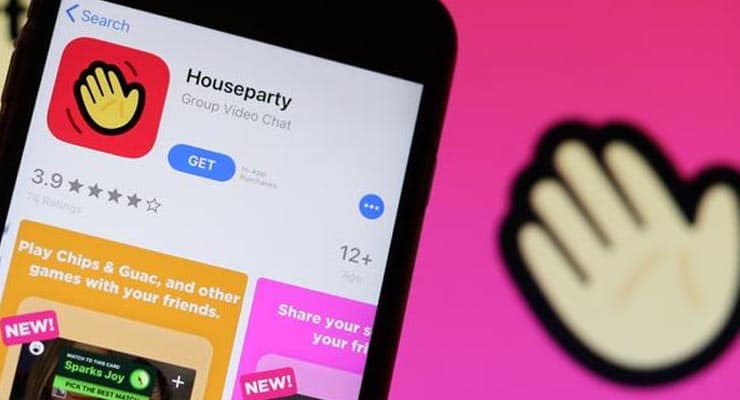Houseparty lost 1 million users after online hoax, BBC reporter reveals
In the midst of a pandemic, while many businesses were struggling to stay afloat, others were surging in popularity. One of those was Houseparty, a standalone video conferencing app that – like its main competitor Zoom – saw its usage increase exponentially.
First launched in 2016, it was acquired pre-pandemic by Epic in 2019, the team behind the immensely successful Fortnite video game. The app peaked in popularity during those first few months of the pandemic back in 2020, when lockdown parties and remote working were in full swing.
But the app’s success was to be comparatively short-lived. This could be attributed to many different reasons, including the app’s inability to successfully compete with its primary alternative, Zoom. But its likely that many will also cast an accusatory finger back to the last few days of March 2020.
Sponsored Content. Continued below...
Because that’s when a viral hoax hit the ground running that falsely claimed the Houseparty app was somehow “hacking” the Spotify, Netflix and online banking accounts of those who installed the app on their phone.
The rumours became even more embellished, with many claims spreading that Houseparty was actually operated by a team of hackers.
As we said at the time, there was no substance to any of the rumours. The rumours didn’t address how Houseparty was trying to compromise other apps, or how the apparently malicious app could evade both Google and Apple’s filters that look for – specifically – security threats.
In fact, Epic soon offered a $1 million (£722,000) bounty for anyone who could provide information on who was behind what they called a smear campaign.
Only a year later, and Epic announced the Houseparty app would no longer be available in the app store as the development company claimed they could not give it the attention it deserved.
Sponsored Content. Continued below...
But its only now that we’re learning just how much that 2020 viral rumour damaged the Houseparty app’s reputation, with BBC reporter Joe Tidy saying a company insider told him the hoax resulted in a staggering 1 million uninstalls.
Now Houseparty is dead, I've got permission to share something insane that an insider told me last March. Remember that viral nonsense about the app 'hacking people's phones'. A classic piece of bs viral misinformation. Well it led to more than 1 MILLION people deleting the app. https://t.co/4kKbdialD1
— Joe Tidy (@joetidy) September 10, 2021
It’s a classic example of how viral misinformation – shared widely by those who choose to believe copy & paste scarelore – can really hurt companies and individuals in the real world.
No, Houseparty was not hacking into people’s phones. But that doesn’t matter to those who start these rumours. By the time the truth came out (a truth that will never have such a far-reaching influence when compared to the hoax it debunks) the damage had already been done.
The team behind Houseparty never blamed the hoax for its eventual downfall – at least not directly – but who knows what the future may have held for the app had it not lost so many users to an Internet hoax.
Continued below...
Thanks for reading, we hope this article helped, but before you leave us for greener pastures, please help us out.
We're hoping to be totally ad-free by 2025 - after all, no one likes online adverts, and all they do is get in the way and slow everything down. But of course we still have fees and costs to pay, so please, please consider becoming a Facebook supporter! It costs only 0.99p (~$1.30) a month (you can stop at any time) and ensures we can still keep posting Cybersecurity themed content to help keep our communities safe and scam-free. You can subscribe here
Remember, we're active on social media - so follow us on Facebook, Bluesky, Instagram and X
